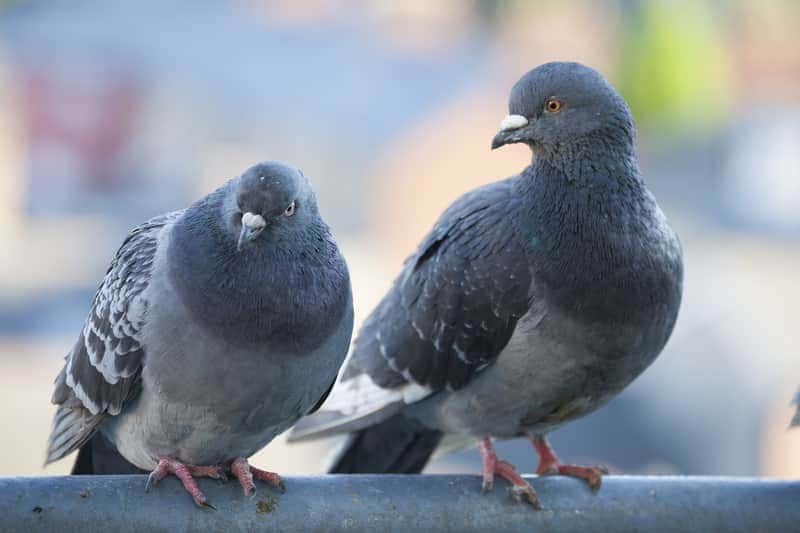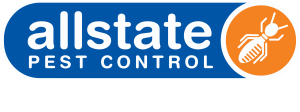
Rodent Control for Distribution Facilities
What questions will this article answer?
Why rodents are a threat to distribution facilities
Distribution facilities are at high risk of rodent outbreaks, which can cause hefty fines for breaching health and safety regulations.
Problems caused by a rodent outbreak
Rodents cause damage to stock, supplies, equipment and buildings, as well as contamination around the workplace and the spread of infections.
How to identify a rodent infestation at your distribution facility
Look out for squeaky noises, gnaw marks, food crumbs scattered around, an unpleasant musty smell, droppings and nests.
How to prevent a rodent outbreak at distribution facilities
We recommend removing all potential food and water sources, sealing over entry points, practicing safe food storage and maintaining good hygiene standards.
Professional rodent control
At Allstate, we use a combination of physical traps and baits for effective rodent control.
Integrated pest management for distribution facilities
Keep all pests including rodents away with a tailored pest management program that you can access online 24/7.
For fast and effective rodent management, choose Allstate
We’re available 24/7 for advice and solutions for rodent outbreaks at distribution facilities of all sizes.
Why rodents are a threat to distribution facilities
Distribution facilities are ideal places for rodents to nest, feed and breed. As the weather cools down, they are particularly drawn to the shelter and warmth of the indoors.
As expert scavengers, they will eat almost anything, from human to pet food to rubbish, even soap and leather, with plenty of other food sources to choose from at any given distribution facility.
Businesses can pay a heavy price for a rodent outbreak. From spoiling goods and spreading diseases to causing electricity supply problems or even starting fires, rodents can cause disruption, distraction as well as loss of business, hygiene and productivity. Clients, customers and staff alike may feel put off from visiting your facility.
To make matters worse, a rodent infestation is considered a breach in government health and safety standards, and can result in significant fines and penalties.
With many potential rodent entry points at a distribution facility, it’s important to avoid an outbreak at all costs.
Problems caused by a rodent outbreak
Since warehouses and distribution facilities are ideal places for rodents to hide, nest and breed, this can create havoc in the workplace. Rodent problems can include:
Damage to stock, supplies, equipment and buildings
With their strong, continuously growing teeth, rodents can chew through packaging, wood, plaster and insulation, as well as electrical wiring. In addition to the damage, they can create a significant mess with gnawed food, scraps and crumbs.
Contamination and spreading infections
Rodents are notoriously unhygienic. They can carry germs and diseases in their fur, saliva and droppings, such as Salmonella, leptospirosis, lymphocytic choriomeningitis and rat bite fever. They contaminate surfaces, utensils, floors and equipment and leave staff and customers feeling unwell.
Manage rodents fast. Speak to an expert today.
 or
or
How to identify a rodent infestation at your distribution facility
Look for the following signs of a rodent outbreak at your business:
Noises
Distracting sounds may come from rodents in your roof and walls, such as scampering, scurrying and squeaking, particularly at night.
Gnaw marks
Rodents are able to chew through timber structures, pipes, walls and cables, not only causing physical damage, but also leaving behind characteristic bite marks. Also look for traces of gnawed food items and scattered crumbs.
Unpleasant smells
Rodent waste can give off a musty, sour smell.
Droppings
Shaped like black grains of rice, mouse droppings are 3-5mm in length, and rat droppings are usually 12-18mm in length.
Nests
Made from a collection of foraged material scraps including wood, cardboard, paper and fabric, rat nests are a strong indication that you have an outbreak on your hands. These can be hard to spot as they are usually well hidden.
How to prevent rodent outbreaks at distribution facilities
Rodent proofing [insert link: https://allstatepest.com.au/rats/how-to-get-rid-of-rats-in-winter/] your business is the best way to avoid the complications of an infestation. We recommend the following tips for a rodent-free workplace:
- Inspect your building for all potential rat and mouse entry points [insert link: https://allstatepest.com.au/rats/7-tips-to-keep-rats-out-of-your-house-this-winter/] and seal them over
- Rodents are incredibly flexible and have the ability to squeeze through tiny gaps, so cover all gaps, cracks and crevices as soon as you notice them.
- Regularly inspect less-frequented storage areas as they make great hiding spots for rodents to build nests
- Follow safe food handling and storage practices, removing all sources of water and clearing away food spills immediately
- Maintain high hygiene standards by minimising clutter, and regularly clean using industrial strength products
- Regularly maintain yards and outdoor areas by keeping plants and trees trimmed away from your building and removing piles of vegetation
- Keeping rubbish bins and waste tightly sealed
Protect your facility from rodents. Get fast advice today.
 or
or
Professional rodent control
After a thorough assessment of your facility, we identify the source of the outbreak and then use the following rodent control methods to fix the problem:
Physical traps
Your pest control technician will position multiple baited traps in highly frequented areas to physically capture the rodents. With rats requiring larger traps and mice the smaller sized ones, we monitor and replenish the traps as needed.
Baits
Laced with a poisonous rodenticide, baits are an effective way to manage a rodent infestation. We are careful to use targeted baits that do not pose a risk to other animals or people.
Integrated pest management for distribution facilities
Preventing rodents and other pests from entering distribution facilities is best achieved with a comprehensive pest management strategy.
Proven to keep customers, clients and employees safe from pest outbreaks, Allstate’s Integrated Pest Management program is the recommended approach to ensure that your business runs smoothly and pest-free everyday.
Beginning with an initial assessment of your property, your assigned pest technician will check for any existing pest control systems and identify all potential risks. They then use this information to put together a compliant and comprehensive pest management solution that meets all government health and safety regulations.
For your convenience, you’ll have 24/7 access via our online portal to your tailored pest management program, as well as all compliance documentation and inspection reports. You can instantly lodge any new problems with your assigned pest technician and receive a fast response and avoid unnecessary delays.
No matter the size or complexity of your distribution facility, speak to Allstate today to learn how we can help you to keep rodents away for good.
For fast and effective rodent management, choose Allstate
That’s why our team is available 24/7 to all suburbs of Adelaide to tackle rodent infestations of all sizes in commercial, industrial and residential settings.
Using non-toxic treatments that are safe for children, pets and the environment, our licensed pest control technicians are fully equipped with the latest technology to manage all types of pest outbreaks.
Enquire today to see how our integrated pest management programs can help keep rodents away from your business for good.




